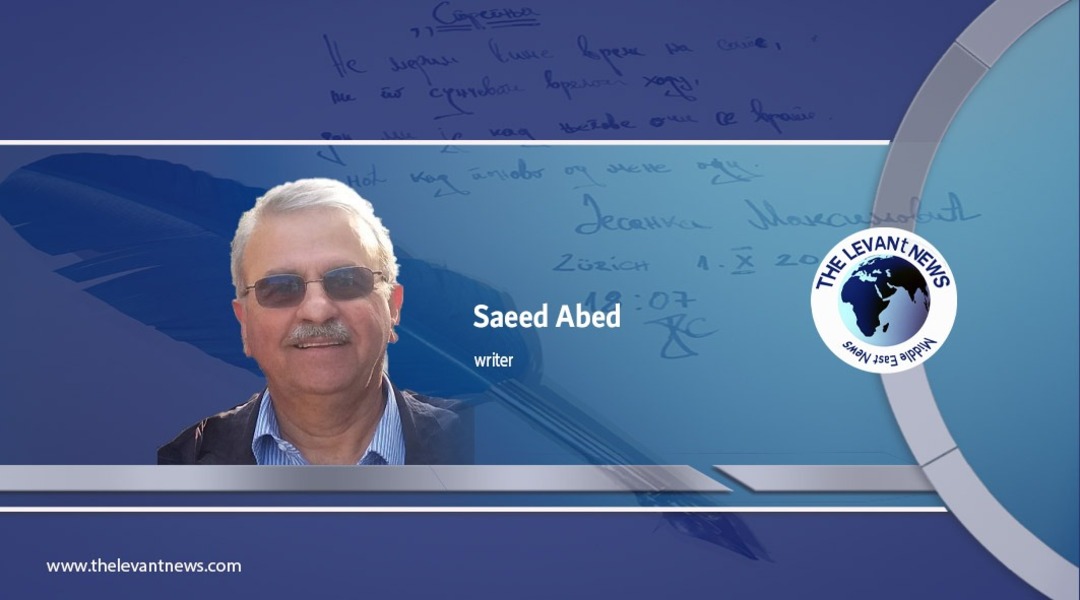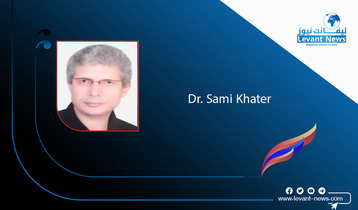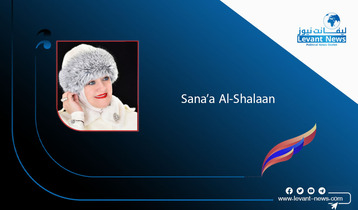-
The democratic revolution in Iran

As we commemorate the anniversary of the anti-monarchy revolution, it is worth noting that a recent uprising has been ongoing for over five months now.
The 1979 revolution was marred by the absence of authentic leaders, many of whom were either imprisoned or killed, and eventually came under the control of Ayatollah Ruhollah Khomeini.
The longstanding animosity between the Shah, the Sheikh, and several nationalists, patriotic, and progressive factions, as well as marginalized ethnic groups, underscores their inherent solidarity against dictatorship.
Presently, our nation is in the throes of a new democratic revolution, with our people fighting for a democratic republic that is devoid of violence, oppression, and dependence.
It is crucial to recognize the realities of the world and strive to promote both regional and global peace by responding to the demands of the Iranian people.
By remaining steadfast in our determination to attain freedom, democracy, equality, and active female participation in political leadership, as well as the flourishing of young talent, we can pave the way towards a thriving and advanced Iran.
Understanding the attributes and essence of an alternative that can avert the hijacking of this democratic revolution is crucial.
It appears that the end of Iran's atypical Islamic regime is within sight, and the international community has the ability to help the people of Iran reclaim their country and reintegrate into the global community.
It is critical to delineate the characteristics of a democratic alternative government that are in harmony with Iran's historical, political, and social realities and ensure that the upcoming regime bears no similarity to the mullahs' tyranny.
The five primary features of this alternative government are as follows: an organized and structured framework, support from both the domestic and international communities, capable leadership and a well-defined plan of action, pluralism, and the rejection of all types of dictatorship.
The National Council of Resistance of Iran (NCRI), a coalition of opposition groups and individuals, with the Mujahedin-e Khalq Organization (MEK) as its primary pillar, is the sole entity capable of fulfilling these requirements.
The NCRI and MEK have been educating political figures, parliamentarians, former government officials, and allied groups for decades about the realities in Iran and have put forth their ten-point plan for a new, peaceful, democratic, and prosperous Iran.
Despite regime oppression and retaliation, the NCRI and MEK have demonstrated their capability to organize significant events and social initiatives. They possess a large number of supporters within Iran and have been inspiring Iranians to pursue change.
The MEK, the principal organization within the NCRI, has a notable network and resistance units within Iran, and it has been leading the current uprising.
It is not feasible to establish a viable alternative to the current regime overnight. However, the NCRI has developed deep roots through its fight against the ruling religious tyranny and has resisted religious fascism, developed a structure and organization, and devised a plan for resistance. Despite facing severe persecution, imprisonment, and executions, the NCRI has remained true to its values, particularly its rejection of all forms of dictatorship.
The NCRI has been targeted by an extensive psychological war and demonization campaign carried out by the regime worldwide. Over a thousand books, movies, and TV series have been produced to malign the NCRI and its alternative. Meanwhile, the ruling regime is finding it challenging to keep its allies in check and is losing its grip on both rhetoric and action.
The NCRI has a history marked by critical moments and high-stakes battles, but its unwavering commitment to democratic and freedom-loving values has saved the Iranian people from a worse fate. Had it not been for the NCRI's resistance, the oppressive regime could have maintained its domination for centuries. The NCRI, along with its courageous supporters, both men and women, are standing up to prevent such an outcome.
The NCRI's proposed alternative presents a promising opportunity for a brighter future for Iran. The Iranian people's sacrifices in their fight for freedom, democracy, and human rights have been significant, and their struggles must not go in vain. It is crucial for the global community to support the aspirations of the Iranian people and join them in their quest for a better future. The international community should collaborate to facilitate a peaceful transfer of power in Iran that upholds the rights and dignity of all Iranians.
The NCRI's ten-point plan offers a comprehensive solution for Iran's political, social, and cultural challenges. It envisions a new Iran based on secularism, democracy, human rights, and the rule of law, which would promote unity and stability in the region. The NCRI's long-standing battle against the ruling regime has proven its capabilities and competencies in preserving the culture of struggle and liberty. The Iranian people now have a viable alternative that can pave the way towards a prosperous and free Iran.
The Iranian resistance’s alternative is now in a position to advance. The proven capabilities and competencies of the NCRI during its battle against the mullahs' regime, as well as its success in preserving the culture of struggle and liberty, means the people and the revolution have their solution in this alternative.
The NCRI's ten-point plan calls for a democratic and secular republic, with free and fair elections, gender equality, and a market economy. This plan includes a commitment to human rights, including freedom of speech, assembly, and religion, as well as a commitment to non-nuclear Iran, and a foreign policy based on peaceful coexistence and cooperation with other countries. The time has come for the world to recognize the NCRI as the legitimate representative of the Iranian people and to work together towards a peaceful transition of power in Iran.
The NCRI alternative will lead to peace, stability, unity, and territorial integrity of the country, and establish the fundamental rights and liberties of the Iranian people. Such unity and its promise can already be seen in the slogans chanted by the Iranian people, including "From Zahedan to Tehran, I sacrifice my life for Iran" or "From Kurdistan to Tehran, I sacrifice my life for Iran."
Indeed, the slogans chanted by the Iranian people show that they aspire to a united and free Iran, and that the NCRI's alternative has the potential to unite Iranians from all walks of life. The NCRI's ten-point plan is designed to address the country's most pressing problems, including poverty, corruption, and human rights abuses, and to promote democracy, gender equality, and religious freedom. The plan also seeks to establish a market economy, protect the environment, and promote Iran's cultural heritage. By addressing these issues and promoting a shared vision for the future, the NCRI's alternative has the potential to unite Iranians and promote peace and stability in the region.
The murder of hundreds of women, men, and children across Iran, and the arrests of 30,000 of others, have sealed the downfall of the religious fascist regime. It will never be the same, and it will not survive.
While it is difficult to predict the future of the regime, it is clear that the Iranian people continue to demand change.
the NCRI is the catalyst for the movement that will usher Iran into a new paradigm of freedom in a matter of time not far ahead.
The situation in Iran is certainly complex, and the path to a democratic and secular Iran is not guaranteed to be easy. However, the NCRI and its supporters have demonstrated resilience and determination in the face of oppression and persecution. The international community can play a crucial role in supporting the Iranian people’s rights for self-defense in their struggle for freedom and human rights, and in recognizing the NCRI as a viable alternative to the current regime. It is important for the West to understand the historic significance of the Iranian revolution and to alleviate the massive pain and hardship they suffered from the Shah or the Mullahs.
Saeed Abed Member of the NCRI Foreign Affairs Committee, Expert on Iran, and the Middle East.

By: Saeed Abed
You May Also Like
Popular Posts
Caricature
BENEFIT AGM approves 10%...
- March 27, 2025
BENEFIT, the Kingdom’s innovator and leading company in Fintech and electronic financial transactions service, held its Annual General Meeting (AGM) at the company’s headquarters in the Seef District.
During the meeting, shareholders approved all items listed on the agenda, including the ratification of the minutes of the previous AGM held on 26 March 2024. The session reviewed and approved the Board’s Annual Report on the company’s activities and financial performance for the fiscal year ended 31 December 2024, and the shareholders expressed their satisfaction with the company’s operational and financial results during the reporting period.
The meeting also reviewed the Independent External Auditor’s Report on the company’s consolidated financial statements for the year ended 31 December 2024. Subsequently, the shareholders approved the audited financial statements for the fiscal year. Based on the Board’s recommendation, the shareholders approved the distribution of a cash dividend equivalent to 10% of the paid-up share capital.
Furthermore, the shareholders endorsed the allocation of a total amount of BD 172,500 as remuneration to the members of the Board for the year ended 31 December 2024, subject to prior clearance by related authorities.
The extension of the current composition of the Board was approved, which includes ten members and one CBB observer, for a further six-month term, expiring in September 2025, pending no objection from the CBB.
The meeting reviewed and approved the Corporate Governance Report for 2024, which affirmed the company’s full compliance with the corporate governance directives issued by the CBB and other applicable regulatory frameworks. The AGM absolved the Board Members of liability for any of their actions during the year ending on 31st December 2024, in accordance with the Commercial Companies Law.
In alignment with regulatory requirements, the session approved the reappointment of Ernst & Young (EY) as the company’s External Auditors for the fiscal year 2025, covering both the parent company and its subsidiaries—Sinnad and Bahrain FinTech Bay. The Board was authorised to determine the external auditors’ professional fees, subject to approval from the CBB, and the meeting concluded with a discussion of any additional issues as per Article (207) of the Commercial Companies Law.
Speaking on the company’s performance, Mr. Mohamed Al Bastaki, Chairman BENEFIT , stated: “In terms of the financial results for 2024, I am pleased to say that the year gone by has also been proved to be a success in delivering tangible results. Growth rate for 2024 was 19 per cent. Revenue for the year was BD 17 M (US$ 45.3 Million) and net profit was 2 Million ($ 5.3 Million).
Mr. Al Bastaki also announced that the Board had formally adopted a new three-year strategic roadmap to commence in 2025. The strategy encompasses a phased international expansion, optimisation of internal operations, enhanced revenue diversification, long-term sustainability initiatives, and the advancement of innovation and digital transformation initiatives across all service lines.
“I extend my sincere appreciation to the CBB for its continued support of BENEFIT and its pivotal role in fostering a stable and progressive regulatory environment for the Kingdom’s banking and financial sector—an environment that has significantly reinforced Bahrain’s standing as a leading financial hub in the region,” said Mr. Al Bastaki. “I would also like to thank our partner banks and valued customers for their trust, and our shareholders for their ongoing encouragement. The achievements of 2024 set a strong precedent, and I am confident they will serve as a foundation for yet another successful and impactful year ahead.”
Chief Executive of BENEFIT; Mr. Abdulwahed AlJanahi commented, “The year 2024 represented another pivotal chapter in BENEFIT ’s evolution. We achieved substantial progress in advancing our digital strategy across multiple sectors, while reinforcing our long-term commitment to the development of Bahrain’s financial services and payments landscape. Throughout the year, we remained firmly aligned with our objective of delivering measurable value to our shareholders, strategic partners, and customers. At the same time, we continued to play an active role in enabling Bahrain’s digital economy by introducing innovative solutions and service enhancements that directly address market needs and future opportunities.”
Mr. AlJanahi affirmed that BENEFIT has successfully developed a robust and well-integrated payment network that connects individuals and businesses across Bahrain, accelerating the adoption of emerging technologies in the banking and financial services sector and reinforcing Bahrain’s position as a growing fintech hub, and added, “Our achievements of the past year reflect a long-term vision to establish a resilient electronic payment infrastructure that supports the Kingdom’s digital economy. Key developments in 2024 included the implementation of central authentication for open banking via BENEFIT Pay”
Mr. AlJanahi concluded by thanking the Board for its strategic direction, the company’s staff for their continued dedication, and the Central Bank of Bahrain, member banks, and shareholders for their valuable partnership and confidence in the company’s long-term vision.
opinion
Report
ads
Newsletter
Subscribe to our mailing list to get the new updates!




















